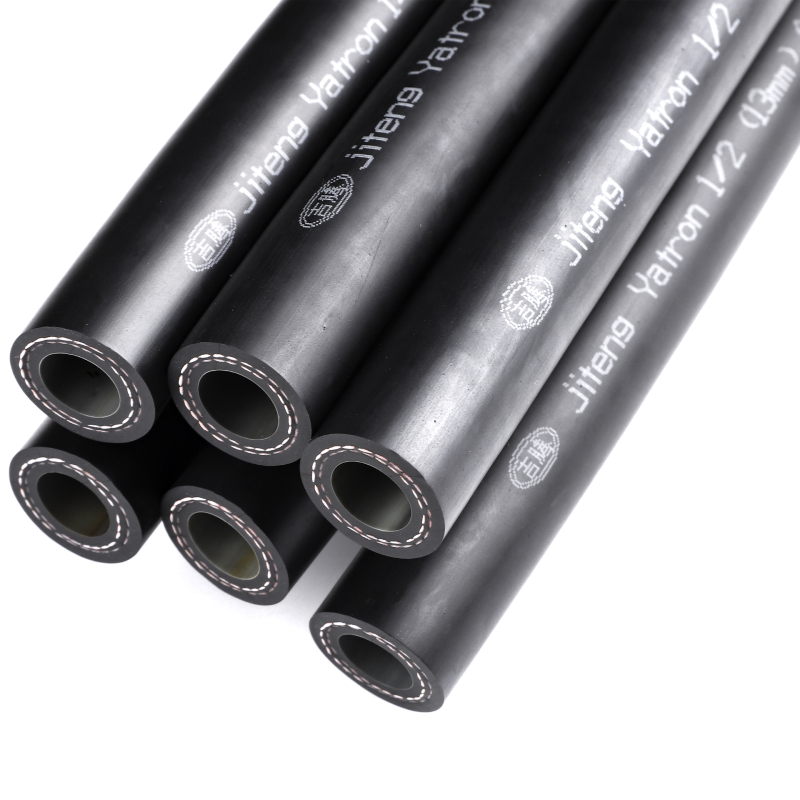AC Drain Hose Specifications and Usage Guidelines for Optimal Performance and Efficiency
Nov . 27, 2024 01:12 Back to list
AC Drain Hose Specifications and Usage Guidelines for Optimal Performance and Efficiency
Understanding AC Discharge Hoses An Essential Component for Efficient Cooling Systems
In the realm of air conditioning systems, various components work together to provide cool and comfortable environments. One crucial component that often gets overlooked is the AC discharge hose. This seemingly simple piece of equipment plays a vital role in the efficient functioning of air conditioning units, whether they are installed in residential homes, commercial spaces, or vehicles. Understanding what an AC discharge hose is, its purpose, and maintenance tips can greatly enhance the performance and lifespan of your air conditioning system.
What is an AC Discharge Hose?
An AC discharge hose is a flexible tube that is designed to transport refrigerant gas from the compressor of an air conditioning system to the condenser. The compressor pressurizes the refrigerant, converting it from a low-pressure gas into a high-pressure gas. This high-pressure gas then travels through the discharge hose to the condenser, where it is cooled down and converted back into a liquid form. In essence, the discharge hose plays a pivotal role in completing the refrigerant cycle, facilitating the process that allows air conditioning units to provide cool air.
The Importance of AC Discharge Hoses
The functionality of an AC discharge hose can significantly impact the overall efficiency of an air conditioning system. When the hose is in good condition, it ensures that the refrigerant flows smoothly from the compressor to the condenser without leaks or blockages. This efficient flow is essential for maintaining optimal pressures within the system, which ultimately affects cooling performance.
Conversely, a damaged or worn-out discharge hose can lead to refrigerant leaks. Leakage not only causes a decrease in cooling efficiency but can also result in severe environmental impacts due to the release of refrigerants. Additionally, refrigerant loss can lead to compressor damage, which is a much more expensive component to repair or replace. Therefore, regular inspection and maintenance of the AC discharge hose are crucial for the health of your air conditioning system.
Signs of a Failing AC Discharge Hose
Knowing the signs of a failing AC discharge hose can help in early detection and prevent costly repairs. Common indications include
1. Refrigerant Leaks If you notice any oily residue around the hose or on the ground, it could signify a refrigerant leak. 2. Reduced Cooling A significant decrease in cooling performance despite the system running could indicate a problem with the discharge hose.
ac discharge hose

3. Unusual Sounds If you hear hissing or high-pitched noises, this could be air escaping from a crack or rupture in the hose.
4. Visible Damage Any signs of physical wear, such as cracks, bulges, or excessive abrasion on the hose, warrant immediate attention.
Maintenance Tips
To ensure your AC discharge hose remains in optimal condition, consider the following maintenance tips
- Regular Inspections Schedule routine checks of your air conditioning system, paying special attention to the discharge hose for any signs of wear or damage.
- Keep it Clean Maintain cleanliness around the discharge hose to prevent debris and dirt from accumulating, which could lead to corrosion or other damage over time.
- Professional Servicing Whenever you perform major AC maintenance or repairs, involve a professional technician who can assess and replace the discharge hose if necessary.
- Correct Routing Ensure that the hose is routed properly, avoiding sharp bends or kinks that could restrict refrigerant flow.
Conclusion
In conclusion, the AC discharge hose may seem like a small component in the grand scheme of air conditioning systems, but its importance cannot be overstated. Proper function of the discharge hose is crucial for the efficiency and longevity of your cooling system. By understanding its role and adhering to regular maintenance practices, homeowners and business owners alike can help ensure their air conditioning systems operate smoothly and effectively, delivering the comfort we often take for granted. As always, when in doubt, consult an HVAC professional to keep your system in top condition.
Latest news
-
Refrigeration Hose-HEBEI KEMO|Low Permeability&Pulse Resistance
NewsAug.12,2025
-
Refrigeration Hose-HEBEI KEMO AUTO PARTS TECHNOLOGY CO., LTD
NewsAug.12,2025
-
Refrigeration Hose - HEBEI KEMO AUTO PARTS TECHNOLOGY CO., LTD|Low Permeability&Ozone Resistance
NewsAug.12,2025
-
Durable AC Pressure Hose for Reliable AC System Repair
NewsAug.12,2025
-
Refrigeration Hose-HEBEI KEMO AUTO PARTS TECHNOLOGY CO., LTD|Low Permeability,Pulse-Resistance
NewsAug.11,2025
-
Refrigeration Hose-Hebei Kemao|Industrial Applications&Automotive Systems
NewsAug.11,2025
